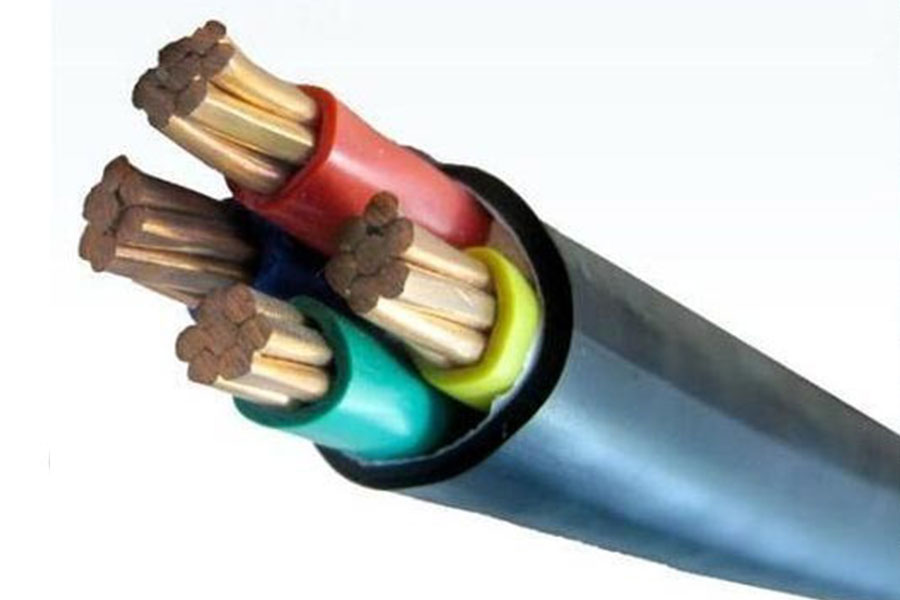
PVC Cable
PVC wire and cable are not necessarily terms you might hear every day, but they are vital elements in the makeup of cable assemblies and other manufactured products. The usual mass of cables that manufacturers and prototype designers have to deal with is one of the main reasons why we provide neat, efficient and effective cable assemblies all over the globe!But here, we’re going to provide some insight and information on what PVC wire and cables are, the various types and their uses. Plus, much more.
But first, here’s the quick summary for you, then we’ll dive into more detail. What Is PVC Wire And Cable? PVC wire and cable are where a thermoplastic material called Polyvinyl Chloride also referred to as PVC is used for wire insulation or cable jackets. PVC wires and cables are widely used due to excellent properties such as chemical, heat and water resistance, robustness, durability, and versatility.
The only specialty in PVC wires and cables is the insulation or sheathing material used. PVC is becoming a commonly used material for many wires and cable constructions recently.
Because of this, a variety of PVC wire and cable types are now available in the market to best suit customer needs. Let’s take a look at them in detail.
Types Of PVC Wires And Cables
Below are some common types of PVC wires and cables that are available to suit different needs.
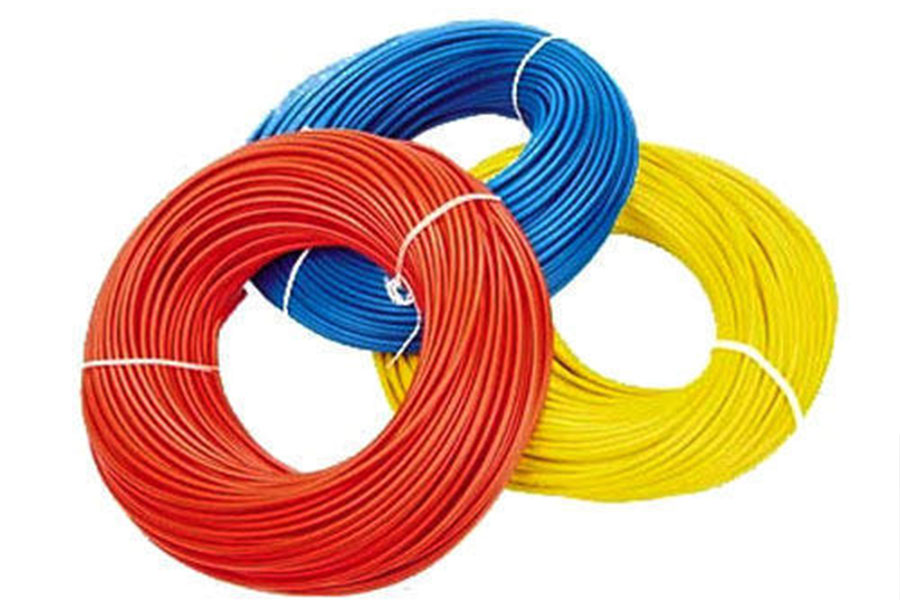
- Special PVC Wires and Cables
Special PVC as the words says exhibits special properties for wire insulation and cable sheathing purposes.The PVC used within special PVC wires and cables present very good electrical and mechanical characteristics compared to the average standard.
Also, this type of PVC cables and wires has good flexibility and strength to suit tough or complicated wiring/cabling needs. The temperature range of this type of PVC wires and cables is as follows.
- Fixed Laying: -40ºC bis +70º C
- Flexible Application: +5ºC bis +70 °C
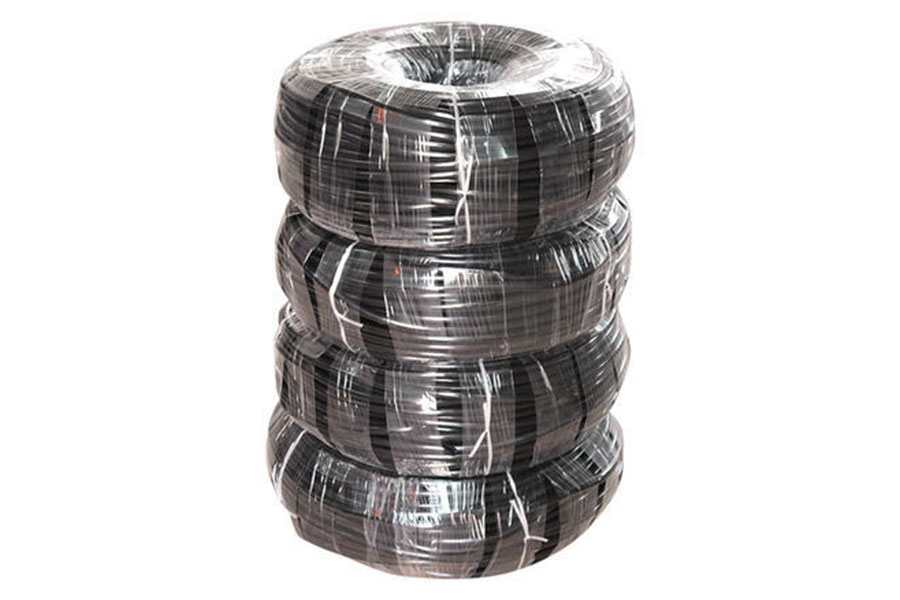
- Cold Resistant PVC
Cold-resistant PVC is known for its extreme cold resistance even at sub-zero temperatures. This type of cold-resistant PVC wires and cables exhibits some excellent mechanical strength and flexibilityNevertheless, it also shows good performance when exposed to various or extreme weather influences. The temperature range of this type of PVC wires and cables is as follows.
- Fixed Laying: -40ºC bis +70º C
- Flexible Application: -20ºC bis +70 °C
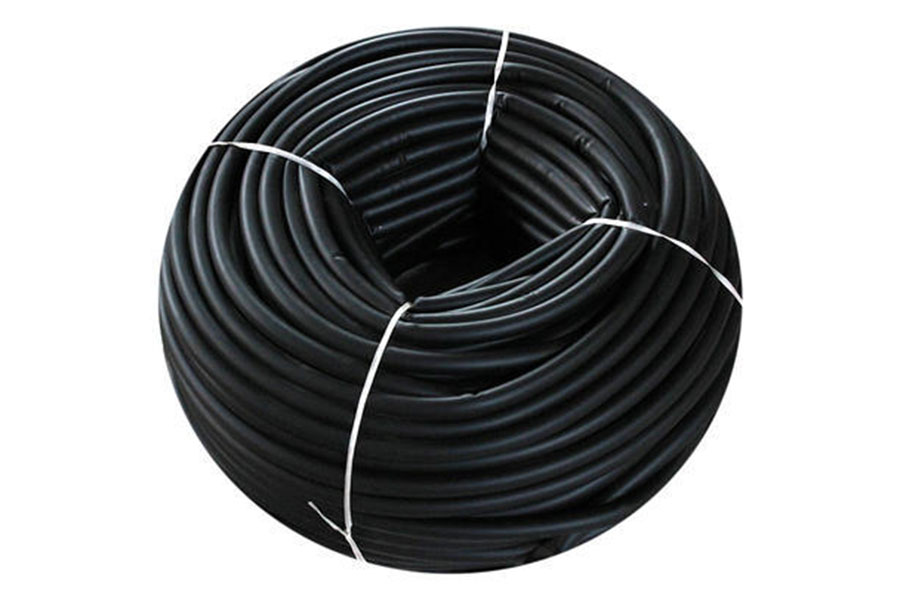
- Heat Resistant PVC
This type of PVC wires and cables can resist extreme temperatures up to +105°C. The insulation and sheath materials used within this type possess excellent electrical and mechanical values to suit higher temperatures.However, not many cables or wires of this type can bear a temperature beyond the maximum and if exposed beyond maximum temperature, it can reduce the usable life of the wire or the cable. The temperature range of this type of PVC wires and cables is as follows.
- Fixed Laying: -40ºC bis +90º C
- Flexible Application: +5 ºC bis +90 °C
- Short time use: – bis+150 °C
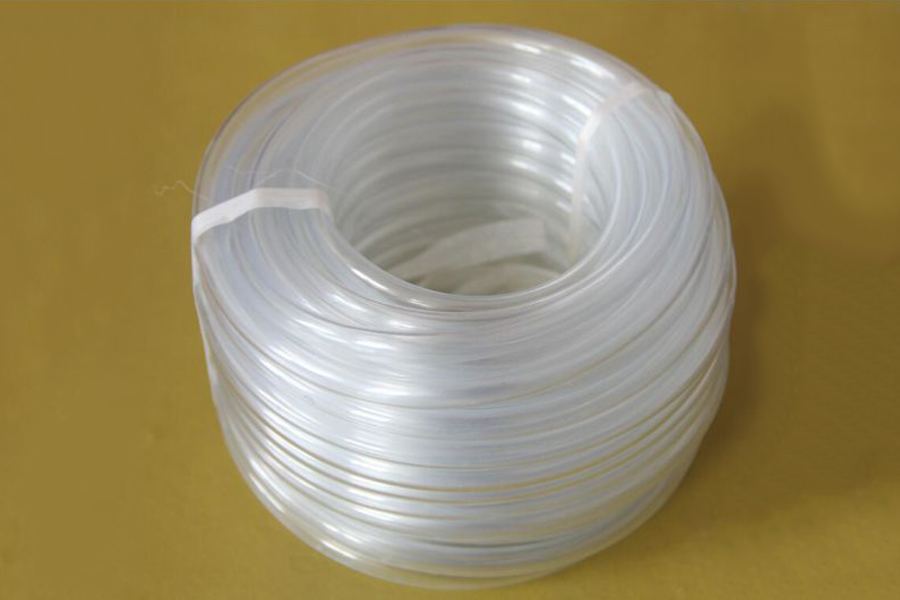
- Oil Resistant PVC
In this type of PVC cable and wires, the mixtures used are oil resistant. The mixture is mostly used as a sheath material in cables but can also be used in wires as insulation. The temperature range of this type of PVC wires and cables is as follows.- Fixed Laying: – 40ºC bis +70º C
- Flexible Application: +5 ºC bis +70 °C
PVC Wire and Cable Uses
Now that you know the types of PVC wires and cables available, let’s take a look at their uses.
PVC wires and cables are commonly used for home appliances, wiring of circuits, instruments, house wiring, mining operations, power supply solutions, submarines, ship wiring, etc. they’re even used in high temperature-sensitive environments like kitchen and related appliances.
The uses of PVC wires and cables come only from their properties. So it’s important to understand how certain properties of PVC wires and cables support different uses of PVC wires and cables. Below are five main properties of PVC wires and cables and how they contribute to certain uses.
- High versatility-One of the main uses of PVC wires and cables is its high versatility. The versatility has given PVC wires and cables extreme flexibility to be modified according to different requirements.
They’re even recyclable and easy to modify using plasticizers and lubricants. This versatility has increased the use of PVC wires and cables in complicated industries. - Extreme durability-PVC wires and cables are highly durable. This feature is similar to other copper wire types that are sturdy and robustly built and yet very supple.
This has increased the usability of PVC wires and cables and their overall longevity. The durability also comes with another great use of resistance. PVC wires and cables are resistant to corrosion, abrasion, chemical, and water most of the time. They’re also rustproof and offer shock absorption capabilities, which increases the durability even more. - Safety-Another major use of PVC wires and cables is its safety. As we all know many wires and cables can become unsafe due to various reasons. Especially the weak resistance to any unexpected environmental conditions is always a concern in wires and cables.
PVC cables and wires, however, have greater resistance increasing its suitability in sensitive environments such as kitchen and related appliances.
This is because the material PVC in common is a highly dependable type of material which is odorless and non-toxic (suitable for food-related environments such as kitchens).
Also, the heat, water, and chemical resistance have increased the usability of PVC wires and cables in kitchens and other similar environments even more. - Customizable-The versatility and flexibility of PVC have made PVC wires and cables highly customizable. They can easily be molded into any shape or other preference. In fact, if you need PVC wires or products in bulk quantities you can easily customize them into any shape or size your business needs.
PVC wires or cables are also cost-effective when you order in bulk quantities. This customizable feature has made PVC wires and cables easy to be used in household or convenient goods on a much large scale.
Even the manufacturing industries largely use PVC wires and cables because of this customizability. Commercial products such as electric motors, panel boards, control cables, and power transformers mainly use PVC wires or cables. - Simple To Use– Another main use that comes with PVC wires and cables is the simplicity and easy-to-use features. This simplicity is again because of the highly versatile property that PVC cables and wires have, making it easy to use for any complicated need.
The simplicity of use is also one of the reasons why PVC wires and cables are mainly used in home appliances. Easy to use also means PVC wires and cables can withstand rough usage. This is why PVC wires or cables do not damage or need to be replaced as often – because of their high strength.
PVC Cable and Wire Manufacturing Process
Let’s take a look then finally at the process involved in making PVC wires and cables
The process involved in making PVC wires and cables is fairly simple and cost-effective because it’s been refined over a long period of time. This is why PVC wires and cables are cheaper compared to other cables and wires.
The material PVC used in PVC wires and cables goes through a process called polymerization. This is where PVC is easily softened by heating making it highly versatile and giving all the flexible properties which PVC wires and cables are well known for.
This process also makes PVC wires and cables lightweight and reduces ‘dielectric losses’ and internal stress in electrical applications – making it easily usable within any appliances or any industry. However, the strength, longevity, and durability of cables and wires remain unchanged by this process.